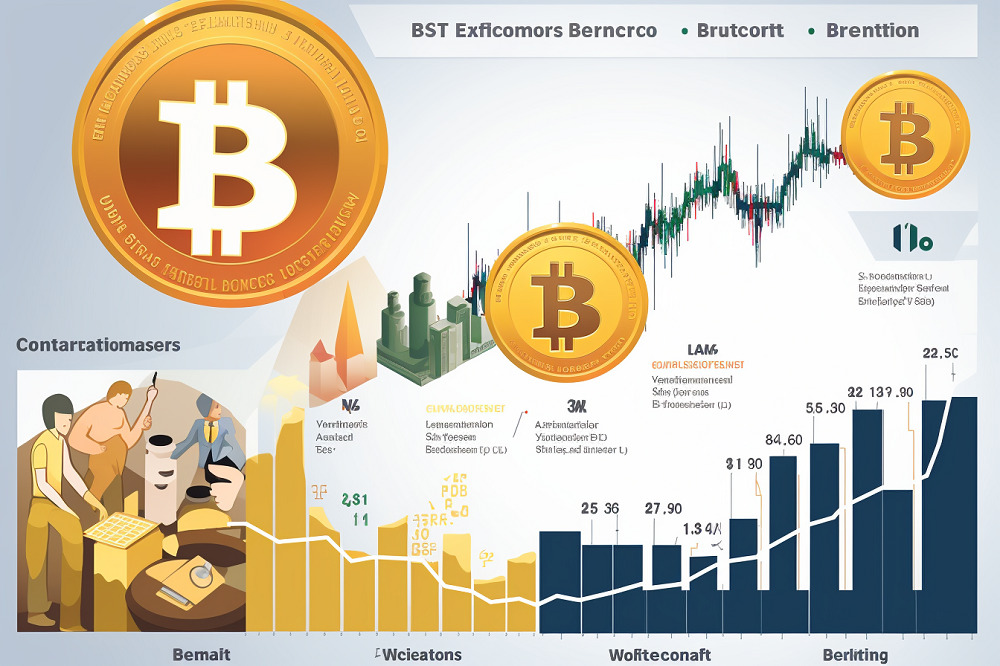A vital indicator of inflation stance adopted by the US Federal Reserve, the US Personal Consumption Expenditure (PCE) Index, recorded a 2.9% annual spike and an average 0.2% monthly rise for December 2023. The yearly decline in the Core PCE, which excludes the unpredictable costs of food and energy, was 3.2%, despite a 0.1% monthly increase.
Meanwhile, the broader crypto market, including Bitcoin, maintained a comparatively stable position following the release of this report, with stock futures experiencing a moderate decline.
US Inflation And Bitcoin Adoption
The current PCE index is still above the 2% objective set by the Fed to assess the impact of monetary tightening. Since March 2022, the central bank has modified the Federal Funds rate to a range of 5.25% to 5.5%, resulting in a significant price slowdown across many sectors, except housing.
When investors believe the central bank’s tightening of fiat currency policy would spark a recession, they tend to sell high-risk assets. In such cases, they shift toward more secure investments like government bonds.
Conversely, when the central bank cuts interest rates, the value of riskier assets, such as Bitcoin, typically rises, propelled by a growing appetite for risk. The US Treasury is expected to reveal its borrowing intentions for this year by the end of this month.
A higher amount of government borrowing may indicate a readiness to take on more risk, thus reducing the attractiveness of government bonds. As a result of these developments, some investors may consider Bitcoin an alternative investment option.
Reasons For Increased Bitcoin Investment
Furthermore, the recent approval of spot Bitcoin exchange-traded funds (ETFs) could turn the asset into a well-established investment tool for several categories of investors. A crypto ETF offers investors a streamlined way to gain direct exposure to changes in the price of Bitcoin, removing the need to purchase the token directly.
Hector McNeil, co-founder of the first gold ETF, believes introducing a spot Bitcoin ETF would accelerate institutional acceptance. McNeil recalled how a gold ETF increased investor participation in this asset, indicating the revolutionary power of such financial products.
He opined that ETFs enabled access to traditionally difficult-to-trade asset categories. The participation of notable asset managers, such as BlackRock, Fidelity, and Invesco, is a decisive vote of confidence in Bitcoin’s validity as an investment vehicle. In addition, McNeil predicts that Bitcoin’s supply limits will gradually push its price up, and Bitcoin, as a store of value, makes it well-suited for money-like functions.
Breaking The Equities Correlation
On-chain data shows that Bitcoin has regularly produced higher returns than traditional safe-haven investments such as gold and US bonds. According to data from the Paris-based crypto analytics firm Kaiko, an investment in Bitcoin in January 2023 would have yielded more than 100% profits.
However, investments in gold and other conventional assets would have produced far lower returns during the same period. According to Kaiko’s report, Bitcoin has outperformed traditional assets, gaining substantial attention following last year’s US banking crisis.
According to the platform, the safe-haven asset remains uncorrelated with equities during market volatility. It is worth noting that Bitcoin’s 60-day correlation with the Nasdaq 100 has dropped significantly over the last year, cementing its reputation as a dependable safe-haven asset. Kaiko points out that this correlation has been near zero since June 2023, attributing Bitcoin’s price swings to the enthusiasm for spot ETFs.
